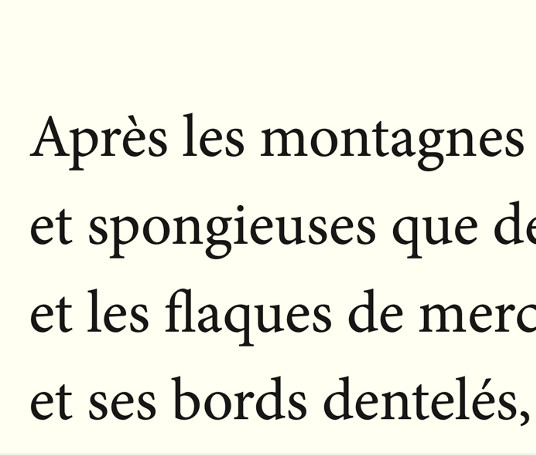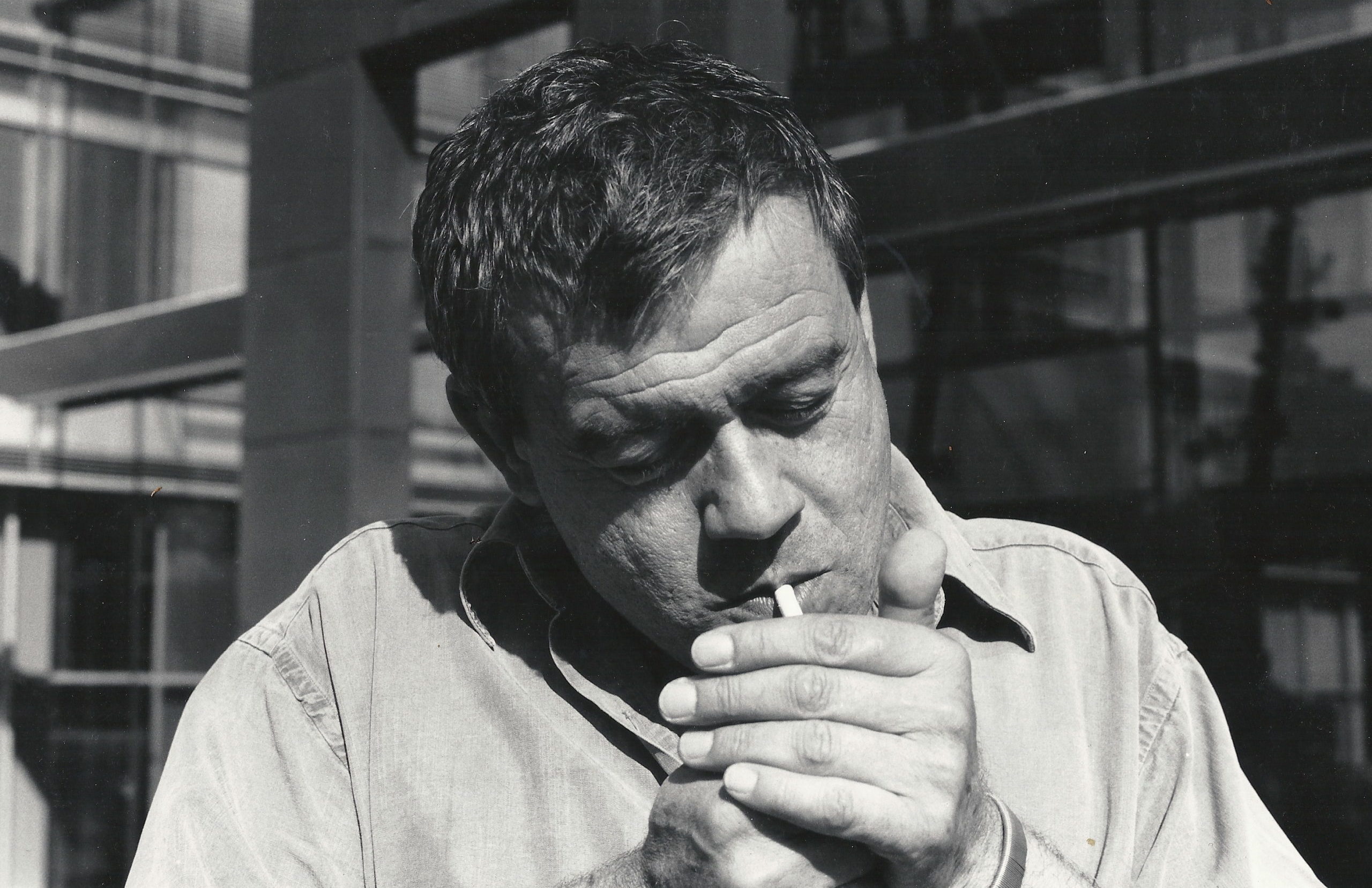
Mind the Gap
Après les montagnes d’Albanie aperçues à travers le hublot, aussi duveteuses
et spongieuses que des bouillons de culture dans l’oculaire d’un microscope,
et les flaques de mercure de lacs au loin, voici les montagnes de Grèce enfin
et ses bords dentelés, avant que la carlingue ne se pose sur le tarmac de juillet
comme on ouvrirait la porte d’un four. Retour au pays ou les citrons fleurissent
et qui marche sur un tapis crissant de cigales tandis que l’Hymette, à la crête
hérissée d’antennes – ou de banderilles – s’apprête à s’assombrir dans le soir
tombant jusqu’à coincider avec la teinte d’une figue mûre. Les cris des gosses
montant d’un jardin public : un pépiement d’ombres parmi les fûts de colonnes
du logos antique, voix de jadis et d’aujourd’hui s’appelant dans la cité sinistrée.
Platon négocie désormais des véhicules d’occasion, Euripide derrière son bar
sert des cafés glacés à emporter, le marbre du Pentélique bordure les trottoirs
et les méandres de l’Ilissos asséché, disparu dans l’herbe et sous les voitures,
ornementent des plaques d’égout. Il suffit encore pourtant, dit-on, d’un oignon
pour dresser une table, le plus important restant de savoir avec qui la partager :
le dénuement se charge d’enseigner l’art et les manières. Mind the gap, ai-je lu
dans le train vers Le Pirée, entre la rame et le quai, entre l’autre et soi, l’Orient
et l’Occident, le grec d’Homère ou de Sappho et celui des apostrophes alentour.
Deux oreilles et deux yeux pour une seule bouche, il s’agira moins de parler ici
que de voir, d’écouter et, comme Goethe s’isolant des canonnades de l’Empire
ou Théophile Gautier ignorant la tempête contre ses vitres fermées, de chercher
refuge et patrie dans cette langue apprise, ânonnée sur les marchés et psalmodiée
dans les églises – alphabet résonnant dans un puits sans fond. Qui ne se contente
de peu (mais ce peu-là est, ici, millénaire) ne pourra jamais se satisfaire de rien.
Translation by Sean O’Brien
English version by Sean O’Brien,
based on a literal translation from the French by Frank Wynne
After a glimpse of the mountains of Albania from the porthole,
downy and yielding like cultures in the gaze of the microscope,
after the distant lakes of mercury, here at last are the peaks
and ragged shores of Greece, and no sooner has the plane touched down
on the melted tarmac of July than the heat is there
in the open door of the furnace. A return to the country where
lemon trees blossom, the country that moves like a rustling
mat of cicadas, while in the gathering dusk Hymettus – its crest
bristling with antennae like banderillas – prepares itself for night
by assuming the shade of a ripened fig. And the shouts of kids rising
from the public gardens; the discourse of chirruping shadows
among the columns of ancient logos; voices past and present
calling to each other across the ruined city. Nowadays Plato deals
in used cars, and the barista Euripides sells takeaway frappé;
the marble of Mount Petelicus edges the pavements, the meanders
of Ilyssos run dry, vanished or embossed on manhole covers.
And yet, they say, an onion is still enough to lay a table: what matters
is to know who ought to share it, for the task of destitution is to teach
both art and courtesy. Mind the gap, I read, on the train to Piraeus,
between the platforms and the train, between self and other, East and West,
the Greek of Homer or of Sappho and the street-cries everywhere.
This is a matter less of speech than of listening and looking, and –
like Goethe taking shelter from the cannonade at Valmy, or Gautier
tuning out the thunder at his window – seeking out a refuge and a home
inside this language, whether learned, or stammered in the agora,
or chanted in a church – an alphabet that echoes in a well
no one has fathomed. Whoever cannot be content with little
(and a little here is a millenium) can be content with nothing.
Audio
Gilles Ortlieb reads Mind the Gap in the original French
Sean O'Brian reads the English version of Mind the Gap

